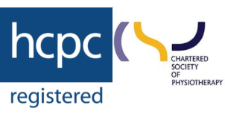So you’ve signed up for a marathon; sourced a program, bought new trainers, are thinking of training soon but have you thought of your conditioning? Pilates may not be the obvious choice for runners when planning their cross training but here’s why it should be: Running is a highly repetitive movement and if there are imbalances in the body it often leads to injuries as the mileage starts to increase. For efficiency and speed, runners need to eliminate any unnecessary sideways or up and down movements. Their bodies need to be able to smoothly rotate with each stride which requires balance and mobility as well as trunk and pelvic stability. All too often many runners suffer tight hamstrings, quads and IT bands and can pick up knee, hip and lower back injuries. These muscle imbalances then create strains and tension throughout the body. Which if not looked after properly can result in having to take time off from running to strengthen the areas of weakness.
"Pilates develops the body uniformly, corrects wrong postures, restores physical vitality, invigorates the mind and elevates the spirit." - Joseph H. Pilates.
Pilates works on pelvic stability to help any unwanted collapse of the hip and improve short foot contact times on the ground. The breathing helps to teach more effective breath patterns essential for maintaining good a running pace. It is also a great source of strength training particularly on the reformer where you can do squats and lunges with resistance.
A Marathon/Reformer Case Study with Georgie our Pilates Teacher & Physiotherapist
In April 2014 Georgie completed the Brighton marathon in 3:58. Previously she would have been in the gym lifting heavy weights as part of her program, but she decided to ditch the gym and instead spend time on the Reformer and use Pilates for her cross training.
Overall how has Pilates helped and been included in your training? Pilates has been fantastic throughout my training, I have used sessions both for strength and flexibility. After the long Sunday runs it was great to jump on the studio equipment and get my body stretched out in ways I couldn’t do myself. I’ve also used the apparatus as a strength and conditioning session, creating a mini circuit with squats, lunges, upper body, and core.
Do you think Pilates has helped you limit your injury risk? Massively so! What Pilates brings to you more than anything else is body awareness. Through my Pilates practice I soon noticed where my weaknesses were and then worked hard to correct them. It meant that when a niggle came up in my knee, foot, back etc, I could focus on strengthening that area and maintain good movement to keep me on track and avoid injury.
Has Pilates helped with recovery after your training sessions? Yes hugely so. It has been invaluable knowing how to properly stretch out the body. I had kept quite a strict routine of coming home, having ice bath, and doing some gently stretches and mobility.
"You can tell the power of Pilates and its brilliance as the next day I am walking normally and not hobbling about in pain!"
To find out more about how Pilates and the Reformer can help your Marathon training and running programme please contact Georgie our Pilates Teacher.
Alternatively for any help or advice or to book an appointment please contact us at one of our clinics.

